About the war in a new way. Views on armed confrontation undergo significant changes.
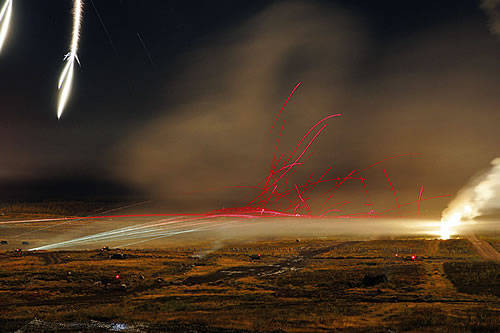
War not only applies to those historical phenomena that, in comparison with peaceful relations, reached developed forms much earlier, but also continue to be a powerful policy tool and a locomotive of scientific and technological progress. However, to date, the war has undergone the most profound changes in socio-political content, military-technical appearance, and the extent of the impact on society.
As early as the 18th century, Carl von Clausewitz introduced three key categories in close relationship: der Zweck is a political goal, das Ziel is a goal of military actions, das Mittel is a means of military influence. All of them were minted into a single fundamental definition: “War is an act of violence, undertaken to subordinate the enemy to our will”. At the turn of the XIX century, they began to believe that since this will is connected with the problem of the redistribution of the world by the leading powers, then all "small" wars and armed conflicts should develop into a large-scale war. Moreover, Marxist theory associated the inevitability of such a large-scale clash with the entry of capitalism into the highest phase of its development — imperialism.
With the emergence of a socialist system opposed to capitalism, this theory continued to remain dominant, although it was supplemented by an ideological component. Moreover, the First and Second World Wars clearly confirmed the conformity of this theory with the realities of the time.
The post-war period as a whole also did not refute it, although the Second World War was the historical milestone followed by major changes in the development of international relations. These changes were due to the formation of a vast area of the so-called "third world".
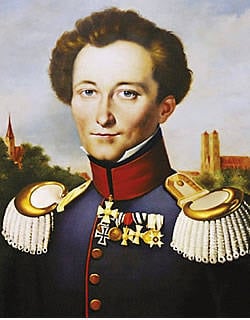 Karl von Clausewitz.
Karl von Clausewitz.After the global military confrontation between the East and the West disappeared in the world, the number of armed clashes began to grow, in which, on the one hand, states continued to participate, and on the other, armed structures that were not related to any internationally recognized actors. At the same time, there was often no clearly stated state political goal of the armed struggle. The consequence of this was the uncertainty in the military objectives of the war, as well as in the permitted military means to achieve them. In other words, the logical chain was broken in these armed clashes: der Zweck-das Ziel-das Mittel.
Nevertheless, throughout the 20th century, the definition of war dominated (given to Clausewitz in its time) as a sociopolitical phenomenon, the continuation of politics by violent means.
However, as noted by the well-known Russian military theorist Alexander Svechin, “there are no identical wars, each war is a special case that requires the establishment of a special logic, a special line of strategic behavior, and not an application of a template.” At the end of the twentieth century, when a whole series of armed clashes took place, the character of which was not consistent with established views, this truth was once again confirmed.
A new search began for the causes and mechanisms for the emergence of such "non-standard" wars and armed conflicts, which led to a real renaissance of the old scientific schools. Their reasons began to be found in the biological characteristics of man (the instinct of obstinacy, or, according to Freud, the innate instinct of aggression) or in cultural factors (features of upbringing, ethnocentrism, double moral standards in the “friend or foe” system, etc.), and Armed conflict has become regarded as a phenomenon that is on a par with evolutionary changes and environmental disasters. The causes of armed conflicts were attributed to randomness and uncontrolled development of events, as well as the irrational activities of groups of people, primarily political leaders, who, when making vital decisions for their country, are guided by "their personal choice." Armed conflicts were considered on the basis of the statement that any viable social institution should perform certain important functions, including war as a tool for maintaining homeostasis and ensuring economic, demographic, punitive (restoring social order), psychological and other balances. At the same time, it was believed that the state lives according to objective laws of development, among which the desire to occupy a certain optimal position that would help ensure its long existence was highlighted.
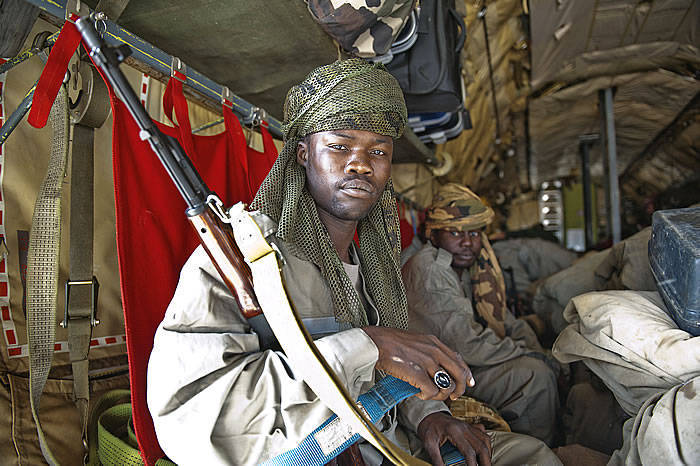
With such approaches, any war should be considered as an armed conflict, but at the same time not every armed conflict can be related to war. Moreover, the same armed clash of each of the opposing sides can be classified quite differently. So, for a small, militarily and economically weak country, even a local armed incident becomes a full-scale war, while another country with a developed defense industry and powerful armed forces considers the same event as not deserving of special attention.
Thus, the differences between armed conflict and war began to be associated mainly with the assessment of this event by the public involved in it. If armed struggle affects the security of each individual, all strata of society and the state, defines all spheres of their life activities, becomes the main, decisive means (method) to achieve basic social and political goals, then in this case we are talking about war. If the military factor affects only a part of society, and the achievement of the main goals of social groups not involved in the clash takes place in other forms of struggle (ideological, diplomatic, psychological, economic, political, etc.), then they prefer to talk about armed conflict. Accordingly, if during the war a restructuring of the entire social and political life of the society is supposed, then for the conditions of an armed conflict such a deep restructuring in the activities of state and public structures is not supposed.
Obviously, in real life, based on this approach, it is very difficult to draw the line between war and armed conflict. Moreover, such incorrectness leads to the fact that the forms and methods of conducting armed conflicts (including internal ones) begin to copy from the “big” war, only on a reduced scale. However, at the end of the 20th century, the nature of armed conflict became less and less like such a reduced copy of war. Consequently, the practice of military construction requires a clearer identification of modern wars and armed conflicts, for which it is necessary to consider them as a kind of process.
In this regard, it should be noted that in modern conflictology there are several more or less developed approaches to the scientific identification of situations of war and armed conflict. Ultimately, they all try to establish patterns of their phase development. Summarizing these approaches, we can distinguish six such phases: the emergence of a conflict; significant exacerbation of socio-political tensions; the beginning of a separate conflict of force; violation of the situation of strategic stability and large-scale use of force; de-escalation and completion of the armed phase of the conflict; restoring peace.
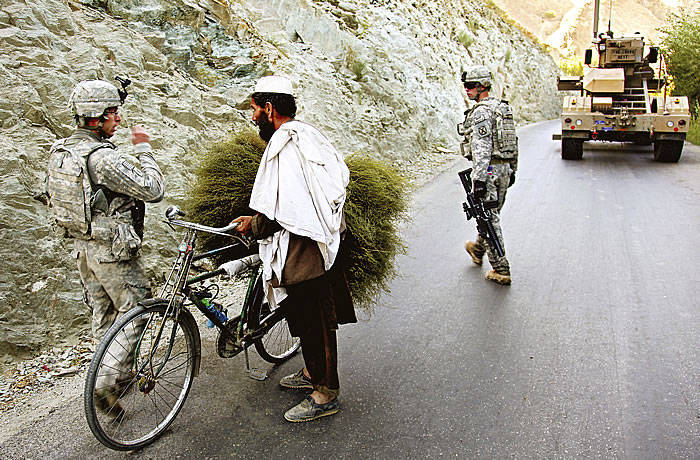
It is quite clear that the zero phase (peaceful cooperation) is chosen as the starting point for the emergence of armed conflict - the most favorable period of the development of society, during which political, socio-economic and other contradictions are resolved only by unforced means and means. However, the term “peace” itself has not yet been subjected to any detailed analysis, for the world can be viewed both as a state and as a definite activity aimed at preventing war. Moreover, it should be emphasized that in the first case the world is not at all equivalent to the complete absence of any kind of violence. Maintaining the world order implies the use of military force as well.
At the heart of the war and armed conflict are some objective contradictions that have acquired a deep antagonistic nature, when armed violence is perceived as an acceptable way of achieving the goals set, and the groups participating in it are convinced that they have enough forces for that. Therefore, it is of great theoretical importance to consider the factors and conditions under which the conflict potential moves into a phase of armed struggle.
Some theorists believe that wars do not start if the fighting nations reach an agreement in assessing their relative power, and they arise when the nations involved in the conflict differ in these assessments.
There are a number of factors that traditionally make a judgment about state power and by which this power is compared with the power of other states. If a certain generalizing indicator of the power of one nation is higher than that of its opponent (at least it is considered so), and on the other hand, the probable opponent also believes that he is a stronger state, the probability of war is very high.
This approach is correlated with the consideration of the actions of the laws of war (the dependence of its course and outcome on the set political goals, the balance of economic forces and capabilities of the opposing sides, the combat power of their armed forces, military art and morale). In recent years, Russian military science rethought these laws, and also conducted a fundamental revision of military theory, the methodological basis of which for a long time was the Marxist-Leninist theory of war and the army.
The laws of war act as mainstream tendencies, and they are objective. However, due to the fact that these trends are realized only through the activities of people, the scale of the manifestation of the laws of war may be different. For example, the law of dependence of the course and outcome of a war on its political goals, being connected with the social and political structure of the state, is specified in such an important law as the dependence of the course and outcome of a war on the moral potential of a country. After all, the very possibility of conducting a large-scale war directly depends on the degree of its support by the popular masses.
The second most general law of war is the law on the inseparable connection of its course and outcome with the ratio of the economic capabilities of the parties. It can be assumed that the chances of winning the war are much greater for the side, which initially has the greatest economic opportunities. However, this is not really the case. The fact is that the economic needs of modern warfare, although very large, are not limitless. Their satisfaction practically does not require the entire volume of production, if we are talking about economically strong enough countries. In other words, the logistical requirements of war can be met at the expense of a part of economic opportunities. It follows that a state that has been subjected to aggression, even if it is inferior to the aggressor in terms of national income, as well as in the volume of production of basic industries, agricultural output and other indicators, will not necessarily be doomed to defeat. But under the condition that this state is able to quickly mobilize a part of its economic potential necessary for the needs of preparing and waging war.
Thus, to absolutize the law of dependence of the course and outcome of a war on the ratio of the economic capabilities of the parties is currently not entirely correct. In order to more accurately reflect the possible course and outcome of the war, only the part of the economic potential of the parties that they are able to mobilize for the needs of preparation and warfare in its various periods should be taken as comparable economic indicators.
Therefore, it is necessary to look for additional levers for a more effective manifestation of this law in such more specific laws as the dependence of the course and outcome of a war on the ratio of the military and combat power of the opposing sides. The mechanism of action of these laws is different. Thus, the law of dependence of the course and outcome of a war on the ratio of military power has a much greater inertia compared to the second law, since it takes time to transform military potential into military power and part of it into combat power.
The economic component of military potential has the greatest inertia. Thus, the transfer of the economy to martial law, providing production in the required quantities weapons, military equipment and other material components of military power, takes more than one month. Moreover, the duration of this process directly depends on how the industry is prepared for such a period. It should also be foreseen and take into account the likelihood of additional difficulties that may arise as a result of the active influence of the enemy on the main military-economic objects already in the first phases of the development of the conflict.
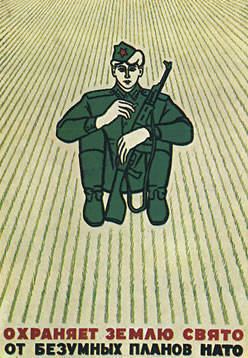 In the era of confrontation between the USSR and the USA, both sides understood “victory” as the military-political destruction of a hostile ideology.
In the era of confrontation between the USSR and the USA, both sides understood “victory” as the military-political destruction of a hostile ideology.Thus, the ratio of military power in favor of the defending side directly depends on the rate of conversion of its military potential into real military capabilities and the formation of all the components necessary for the timely, constant supply of the combat power of the armed forces directly solving the tasks of repelling aggression.
The law of dependence of the course and outcome of a war on the ratio of the combat power of the armed forces of the parties comes into effect from the moment of the attack of the aggressor. It is important to keep in mind that by this time the aggressor, as a rule, will already take all measures to maximize their combat potential, translating it into effective components of combat power. Under these conditions, a country that has become a victim of aggression can count on success only if, firstly, it managed to accumulate sufficient combat potential in advance, to transform a significant part of it into combat power and oppose sufficiently strong defensive groups against the aggressor, and -second, if it is able to intensively increase its combat power due to the elements of military and combat potentials created earlier.
It should be emphasized that even with comparable quantitative and qualitative characteristics of the opposing groups, the delay in opening up direct preparation for an attack and the operational deployment of groups of troops by the defending side immediately gives the aggressor enormous advantages due to the surprise attack and seizure of the strategic initiative. This has become particularly relevant at the present time, when as a result of carrying out sudden powerful, deep fire strikes with the use of high-precision weapons, the aggressor can inflict huge losses on the defending side, disorganize its command and control system to the full depth of operational-strategic construction, and achieve a significant reduction in their morale. All this will lead to a dramatic change in the overall balance of forces in favor of the aggressor and will create the prerequisites for successfully solving not only immediate operational, but also strategic tasks.
It is also necessary to take into account the sociocultural environment of the parties, in other words, the dominant social values, which also determine the nature of the armed struggle.
In an armed struggle it is intended to achieve the goals set for the battle, battle, operation, war as a whole, which is defined as “victory”. Thus, the concept of “victory” correlates with the concept of “goal of war”, and therefore the goal of war can be considered as a kind of standard of victory.
Clausewitz once wrote: “The purpose of a war can be either crushing the enemy, that is, destroying it politically, or depriving it of the ability to resist, forcing it to sign a peace, or the purpose of the war may be some conquest ... to ... use them as useful pledge at the conclusion of peace. " Thus, he designated two standards of victory opposed in history. Obviously, these standards of victory were determined by the material basis of the wars of absolutism as "business enterprises of the government."
The wars of the bourgeois regimes already differ in an immeasurably wider social base, which makes it possible to transform armed conflicts into "people's wars" and "the cause of the life and death of a nation." Behind these new standards of victory is the transformation of the relationship between the mobilization capabilities of regimes and the potentials of destruction. If in the 18th century the power of weapons prevailed over mobilization capabilities and a large European army could be half exterminated on the day of the battle (with similar consequences for its adversary), then from the era of Napoleon to World War II inclusive, there is a constant predominance of the mobilization potential over the means of destruction, despite their improvement.
With the onset of 1950's. nuclear confrontation of two world socio-political systems has come an hour for a new fundamental revision of the meaning of the concept of “victory”. Initially, successes in the development of nuclear and missile weapons were perceived by the political and military leadership as an opportunity for a radical increase in military power. All efforts were aimed at ensuring that the nuclear arms race is stronger than the enemy. At the same time, “victory” was understood not only as a crushing of the enemy’s armed forces, but also as a military-political destruction of a hostile ideology.
Under the conditions of the existence of a bipolar world, the strategic situation was determined by the ideological “intransigence” of the main geopolitical opponents - the USSR and the USA. Despite the complex fabric of their bilateral relations in the political field, it was declared at the military doctrinal level that both sides are and will continue to fight for the survival of their political systems without any restrictions in their means and resources. Moreover, as is well known, in any of the then existing variants of military strategic planning, although the aim was to avoid a global conflict, the principle acceptability of such a conflict was justified by the need to ensure the survival of the nation and state in the face of the "mortal threat". Let us recall, for example, the ideological American installation known in its time “it is better to be dead than red”, which was viewed in the United States not only as a propaganda stamp.
In this situation, the famous thesis of Clausewitz that war is a continuation of politics by other means was actually exploited and brought to the point of absurdity.
If we look in this connection to the history of the “cold war”, then it should be recognized that the existing “genetic” or systemic conflict between superpowers in principle seemed unlimited by any rational political framework of events. Therefore, each strategic doctrine of that time proceeded as if from the potential inevitability of an unlimited escalation of the conflict.
Every war and armed conflict ends sooner or later. At the same time, ending the war from a political and legal point of view means ending the state of war, that is, restoring peaceful relations between the warring parties with important international legal consequences. States, as a rule, restore the legal restrictions interrupted by the war with respect to citizens (and legal entities) that were considered to be citizens of an enemy state in connection with the war, and other legal consequences caused by the state of war are eliminated. The cessation of a state of war is usually preceded by the cessation of hostilities, which, according to international law, implies a truce or capitulation. A truce can be private (in a separate sector of the front) or general (across the front); urgent and indefinite. Capitulation, in contrast to the truce, which is the result of an agreement between the belligerents, ceases hostilities under the conditions set by the winner. However, in most cases neither a truce nor a capitulation still end the state of war. For the legal termination of such a state, states resort to various international legal means and forms. This may be a unilateral act resulting from the initiative of one party. For example, in 1951, England, France and the United States, each separately, unilaterally declared that the state of war with Germany had ceased. 25 January 1955 g. By decree of the Presidium of the Supreme Soviet of the USSR, the state of war between the USSR and Germany was terminated. All restrictions on German citizens arising from the war were lifted. The cessation of a state of war can be the result of a bilateral declaration when it is based on the agreement of states. For example, 19 of October 1956 of the USSR and Japan signed a joint Declaration, according to which the state of war between them ceased and “peace and good neighborly relations” were restored.
A special international legal form designed to end the state of war is a peace treaty. The peace treaty most fully and comprehensively resolves issues related to the restoration of peaceful relations, including territorial issues, the fate of civilians, armed forces of the defeated state, prisoners of war, reparation (reparations), and the responsibility of war criminals. Thus, on the basis of peace treaties in 1947, their participants terminated the state of war with Germany’s former allies - Finland, Italy, Romania. The final line under World War II in Europe was laid down by the Final Settlement Treaty with respect to Germany, signed by the USSR, the USA, Great Britain, France, the GDR and the Federal Republic of Germany 12 September 1990. This document contains most of the provisions that are subject to peace treaties.
From the above examples it is clear that the end of the war is formalized by interstate acts. Recently, however, wars and armed conflicts in which states are involved, on the one hand, and, on the other, armed groups that are not internationally recognized state structures, have become particularly relevant. In this case, the situation with the registration of legal acts on the cessation of hostilities is significantly complicated. After all, the armed forces are an organization established on a legal basis and maintained by the state, and all other armed groups are illegal. Therefore, if in a war the criterion of victory can be served by forcing the enemy to sit at the negotiating table, then in armed conflicts related, for example, to the fight against international terrorism, the problem initially is that it is not clear with whom to negotiate and what they are can end?
Thus, although views on the war and its socio-political content are constantly evolving, uncertainty persists with many of their important characteristics.
Information